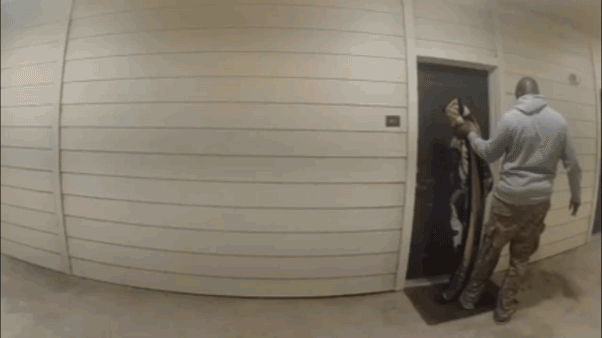INDIANAPOLIS – Longtime Subway pitchman Jared Fogle is expected to plead guilty to child-pornography charges, an Indiana television station reported.
The Tuesday report on Fox59 came six weeks after authorities seized electronics and other items from Fogle's home in Zionsville, an affluent Indianapolis suburb.
Citing sources it did not identify, the station said Fogle would enter a plea Wednesday. It also said the U.S. Attorney's Office in Indianapolis planned to hold a news conference Wednesday.
The 37-year-old Fogle became a Subway pitchman more than 15 years ago after shedding more than 200 pounds as a college student, in part by eating the chain's sandwiches.
Subway suspended its association with Fogle after the raid. The company declined to comment Tuesday, saying only that the chain had "already ended our relationship with Jared."
Ron Elberger, an Indianapolis attorney who represents Fogle, and Tim Horty, a spokesman for the U.S. Attorney's Office in Indianapolis, both declined to comment on the report.
Two months before Fogle's home was raided, authorities arrested the then-executive director of Fogle's foundation on child-porn charges. Russell Taylor, 43, ran the Jared Foundation, which sought to raise awareness about childhood obesity. He was charged with seven counts of production of child pornography and one count of possession of child pornography.
Investigators said they discovered a cache of sexually explicit photos and videos Taylor allegedly produced by secretly filming minor children at his home.
After those charges were filed, Fogle issued a statement saying he was shocked by the allegations and was severing all ties with Taylor.
Though Fogle has not been front-and-center in Subway's advertising recently, he had still been acting as a Subway spokesman and appearing at events on the company's behalf.
Fogle's history with Subway reaches back to when he was a student at Indiana University. The college paper published a story on his weight loss that was then picked up by national media.
Soon after, Subway's advertising agency reached out to Fogle and asked if he wanted to be in a TV commercial. The ensuing ad campaign resonated in part because Fogle seemed like such a regular guy, which made weight loss seem simple and achievable.
Of course, Fogle was not the only reason for Subway's growth. Its $5 footlong deals were popular with people looking to save money, and many customers liked that they could have their sandwiches made to order.
Still, Fogle was instrumental in Subway's success over the years.
In 2013, Subway celebrated the 15-year anniversary of Fogle's famous diet by featuring him in a Super Bowl ad and making him available to news organizations for interviews. At the time, Fogle said he still traveled regularly on behalf of Subway. He also said he had a Subway "black card" that let him eat at the chain for free.
The company, based in Milford, Connecticut, has declined to provide details on its financial arrangements with Fogle.
In 1999, the year before Fogle appeared in his first Subway commercial, Subway had about 14,000 stores worldwide, according to Technomic. As of last year, that figure had tripled to about 43,000, making Subway the world's largest restaurant chain by locations.
More recently, Subway has run into challenges. The chain has been trying to keep up with changing attitudes about health and announced in June that it would remove artificial ingredients and colors from its North America menus by 2017. Subway is also facing more competition from rivals such as Firehouse Subs.
Last year, average sales for Subway stores in the U.S. declined 3 percent from the previous year, Technomic said.
The company is privately held and does not release financial information.









































